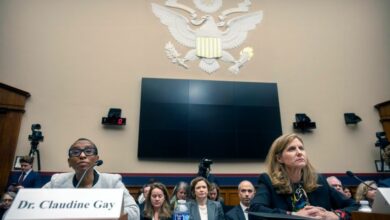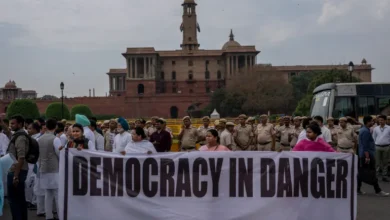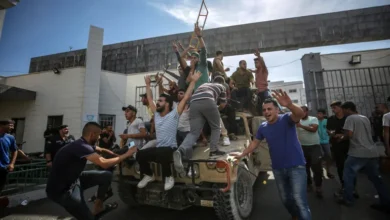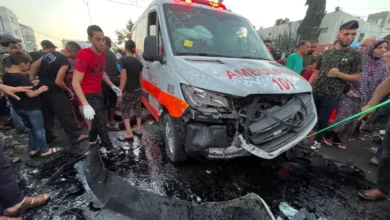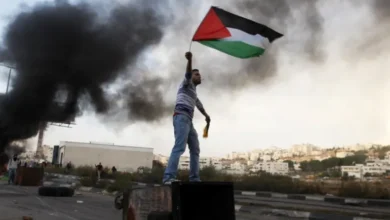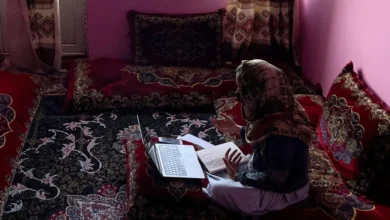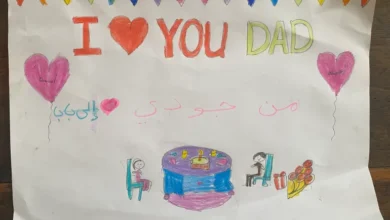Mariam Barghouti
Ghassan Elkahlout
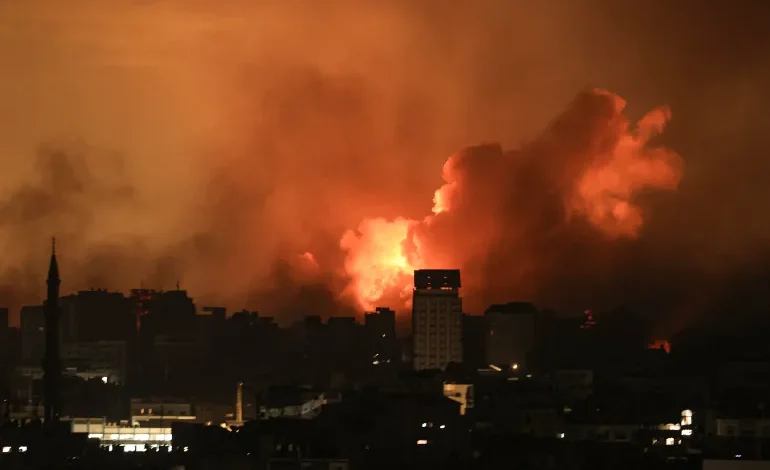
On Saturday, October 7, Hamas forces in the Gaza Strip embarked on a multipronged attack on Israel, dubbed Operation Al-Aqsa Flood, firing a barrage of thousands of rockets and infiltrating areas in the south of the country.
The unprecedented operation had profound ramifications both for the Israelis and the Palestinians. In Israel, some 1300 people were killed and over 3,300 others were injured. In Gaza, Israel’s retaliatory attacks claimed over 1500 lives and wounded 6500 others. Israel also cut off the electricity supply and blocked the entry of food and fuel to the Gaza Strip as part of an unlawful “total siege” strategy adopted on Monday. With an Israeli ground invasion of the Gaza Strip imminent, the scale of the violence, disproportionately targeting Gaza’s 2.3 million inhabitants, is expected to magnify.
KEEP READING
list of 4 items
list 1 of 4
Israel, Hezbollah exchange fire amid fears of regional escalation
list 2 of 4
‘Will we return?’: For my Palestinian family, history is repeating itself
list 3 of 4
In Jerusalem’s Old City Israel soldiers ‘do what they want’ to Palestinians
list 4 of 4
Israel moves hundreds of tanks close to Gaza fence as ground invasion looms
end of list
As a Palestinian who has grown up within the confines of a refugee camp in the Gaza Strip, I believe we are now at a turning point in our struggle.
Operation Al Aqsa Flood, born out of the instinctual drive for survival of a people subjected to decades of unjust and inhumane humiliation and ill-treatment, has proved yet again that Israel cannot erase Palestine and put an end to the Palestinian people’s righteous struggle for liberation.
It also demonstrated the increasing power and surprising resourcefulness of the Palestinian resistance. Although its specifics are yet to be fully unveiled, the operation showed that, despite facing nothing but oppression, ethnic cleansing, blockades and massacres for many years, the Palestinians are still able to stand up to Israel using the few resources available to them. The operation is a testament to the significant evolution Palestinian resistance has undergone over the past three decades, progressing from small and unorganised groups throwing basic Molotov cocktails in refugee camps to armed fighters paragliding into Israel and rockets infiltrating the “Iron Dome”.
These recent incursions also had a profound impact on Israel’s self-image and standing in the international arena.
Israel has long been presenting itself as the best and most efficient defender of American and wider Western interests in the Middle East, against threats from Iran and others. Recently, the Israeli regime has also been working to normalise its relations with Arab powers, promising to help them protect themselves from the aggressions of their regional rivals.
However, the October 7 incursion, which demonstrated Israel’s inability to safeguard its own highly fortified borders, set within one of the most closely surveilled and controlled territories on Earth, put these assumptions and promises to a serious test. Indeed, after finding itself under an organised attack, instead of relying on its own much-advertised military capabilities and prowess, Israel immediately turned to its colonial backers for material and symbolic support. It was highly ironic that the United States had to promise further military assistance to a nation that is already heavily fortified and supported by an annual $3.8bn in aid.
Despite the US President and European leaders all rushing to reaffirm their support for Israel after Saturday’s operation, it is hard to deny that the events of the past week, which saw Israel fail to protect itself against a group that has been under siege and under attack since its very inception, raised important questions about Israel’s value as an ally to the West. After all, a state unable to protect its own borders, despite being in possession of the best surveillance technologies and military equipment, could hardly help resolve its allies’ security concerns in a highly volatile region.
Operation Al-Aqsa Flood raised serious questions about the future of normalisation efforts between Israel and its Arab neighbours as well. The Abraham Accords, the US-mediated agreements between Israel and several Arab states signed in 2020, were presented to the international community as a pathway to sustainable peace in the Middle East.Since the October 7 incursion, and Israel’s disproportionate retaliatory attacks on the Gazan population that followed, however, the Arab public made it clear to the international community that there can be no enduring peace in the region until Palestinians find justice and freedom. Thousands took to social media or to the streets across the Arab world in solidarity with Palestinians under total siege and relentless bombardment in Gaza and demanded from their leaders that halt to any efforts for normalisation with Israel until the oppression, occupation and abuse in Palestine comes to an end and millions of Palestinian refugees scattered around the region are allowed to return to their ancestral homelands. Now the leaders interested in normalisation with Israel have to consider both the revelations about Israel’s limited capabilities to protect its own borders and their constituents’ clear wish that they prioritise the wellbeing of Palestinians above anything that can be gained from a partnership with Israel.
Furthermore, as Israel gears up to launch yet another devastating and deadly attack against a besieged population in the form of a ground invasion, there is a distinct possibility that armed groups in the region with strong ties to Hamas, such as Hezbollah in Lebanon, may join in the conflict. This would lead to the conflict in Palestine expanding to a larger section of the region, making it even more difficult for any Arab nation to maintain normal relations with the government of Israel.
After enduring 16 years of blockade, several bloody wars, and gradual strangulation, Palestinians in Gaza are now facing the threat of a genocidal land invasion. Israel’s ongoing acts of disproportionate violence and war crimes against Palestinians in Gaza are aimed not only at avenging the Hamas incursion but also at showing strength to the international community. The tragic events of the past week exposed Israel’s many weaknesses, revealing to its supporters that it is not the indispensable ally and security partner it purports to be. We have also seen how the Arab street is still firmly behind Palestinians and would not agree to normalisation between their states and Israel unless all Palestinians are safe, free and allowed to return to their homeland. Israel is trying to repair its image as a security leader with its attacks on Gaza’s besieged population, but all it is doing is to highlight the strength of Palestinian resistance.
